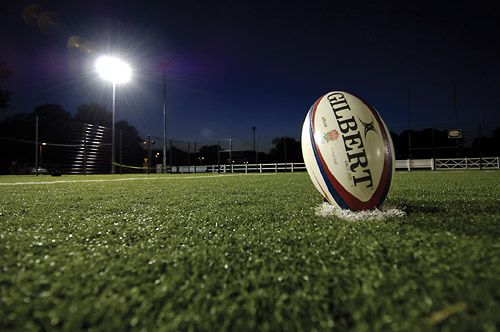When you’ve got foot pain, many people will try anything that promises to get rid…
Do You Have One Of These Rugby Injuries?
 Oh, Rugby. It’s hard to talk about without feeling some NZ pride in our performance on the field. As with any physical activity and contact sport, injuries are inevitable. While we can’t completely prevent them, we can help to reduce their occurrence by understanding what the risks are, why they occur and what we can be doing to keep ourselves, and our families, safe.
Oh, Rugby. It’s hard to talk about without feeling some NZ pride in our performance on the field. As with any physical activity and contact sport, injuries are inevitable. While we can’t completely prevent them, we can help to reduce their occurrence by understanding what the risks are, why they occur and what we can be doing to keep ourselves, and our families, safe.
Today, the Masterton Foot Clinic team are sharing the common rugby injuries we see and treat. But first, here are some quick facts!
- 76% of rugby injuries claimed under ACC are sprains, strains, and bruises.
- Comparatively, concussions make up 3% of claims
- Between 2005 and 2017, 635,657 rugby injury claims were made by players aged 5 to 40 years
- Those aged over 18 are four times more likely to sustain an injury than those under 18 years
It’s not all too surprising that sprains and strains have come out on top, given that rugby is fast-paced, high impact, has quick stops, starts and changes in direction – and not to mention the tackles!
Hamstring Strains
Your hamstrings are the muscle group at the back of the thigh. When they are excessively stretched or overloaded beyond what they can safely handle, an injury occurs. In rugby, this can occur when forcefully pushing off the ground, or when rapidly swinging the leg through for a kick.
Knee Ligament Strains
With all the tackles and falls, the knee joint can be thrust from side to side, which can damage the ligaments that are responsible for keeping it stable. These are the medial and lateral cruciate ligaments (on the outside of the knee joint).
Ankle Sprains
Whether it’s from a tackle or from an attempted quick change in direction while your weight and force are still travelling in the opposite direction, ankle sprains are a biggie on the field. During a sprain, the ankle supporting ligaments are strained and become damaged. If ankle sprains aren’t effectively rehabilitated, long-standing ankle instability may develop.
Peroneal Strain
Your peroneals are the muscles that run down the outside of your lower leg. They help the foot to turn outwards, and damage can occur from the high forces taken by the lower limbs in rugby – which are much higher than in everyday life and other activities. This injury often occurs concurrently with ankle sprains.
Achilles Strain
Your Achilles tendon transmits a great amount of force with every step, enabling you to push off the ground when you start to run, and then keeping you going step after step. This means it can get overloaded in high-impact and repetitive stop-start activities like rugby.
Shin Splints
Shin splints can cause severe pain at the front and inside of your shins that can stop you in your tracks. It’s an overuse injury, meaning that it comes on during repetitive and high impact activities that involve the muscles that attach to your shins – like in running and chasing after the footy ball. It is the quick and repetitive stops and starts on the field that increases your likelihood of developing shin splints.
Aside from these injuries, we also see:
- Stress fractures
- Sesamoid bone injuries
- Posterior tibial tendon dysfunction
- Plantar fasciitis heel pain
- Turf toe
- Damaged toenails
- Plantar plate injuries
- Muscle tears
What can you do to help reduce your risk of injury?
To help reduce your risk of injury, we recommend:
- Always recovering well after every game, using active recovery and passive recovery techniques appropriately
- Warm-up every time, paying special attention to the muscles that you know are tight and hence may put you at risk
- Wearing good shoes that help you stay stable, supported and comfortable
- Getting your technique sorted. Improper techniques during sports and even gym sessions can greatly affect your performance and make you more vulnerable to injury
- Start your rugby training early! Don’t wait for the first game of the season. Get in there early and start conditioning your body so you can be prepared
Worried about pain or injury?
We love helping families in the Wairarapa stay pain-free throughout their favourite sports – whether that’s rugby or another activity! If you’re worried about pain or injury, make an appointment with our experienced podiatry team. We have innovative treatments like shockwave to help optimise your recovery.
Book your appointment online by clicking here or call us on (06) 370 4057
